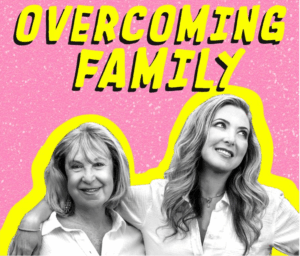Family Patterns: Normal Tension Or Truly Toxic
Family patterns in arguing can be the expression of normal tensions and frustrations, or toxic slugfests. Every family has moments of frustration, slammed doors, and words we wish we could take back. That’s normal. But when tension in your family goes beyond occasional disagreements and turns into repeated cycles of harm, it may be a sign of something deeper: toxic family patterns. In our family, emotional abuse reigned the strongest ,and I truly didn’t know we had it until I was an adult, which caused quite a few problems over the years…
Understanding family patterns and the differences can help you protect your well-being, set healthier boundaries, and make peace with what you can—and can’t—change.
Normal Family Patterns – What Normal Family Tension Looks Like
In healthy families, conflict is part of growth. Arguments happen, but they don’t define the relationship. Some hallmarks of normal family tension include:
-
Temporary disagreements. You may argue about chores, curfews, money, or politics, but the conflict resolves and life goes on.
-
Respect remains intact. Even in heated moments, family members don’t set out to belittle, humiliate, or manipulate each other.
-
Repair follows rupture. Someone apologizes, a compromise is made, and connection is restored.
-
Boundaries are honored. Individual needs and personal space are respected, even if not perfectly.
-
Conflict leads to growth. Disagreements may even strengthen the relationship by teaching communication and problem-solving.
Normal family tension is like a passing storm. It may get loud and messy, but when it’s over, there’s sunshine again.
Toxic Family Patterns – What Toxic Patterns Look Like
Toxic patterns, on the other hand, are not about what happens occasionally—they’re about what happens consistently. These are cycles of behavior that damage trust, erode self-esteem, and keep family members stuck in unhealthy roles. Common signs of toxic family dynamics include:
-
Chronic disrespect. Name-calling, mocking, or dismissing feelings are the norm, not the exception.
-
Manipulation and control. Love or approval is conditional—given only when someone behaves or thinks a certain way.
-
Lack of repair. Conflicts are ignored, minimized, or swept under the rug. Apologies rarely happen.
-
Constant walking on eggshells. You feel unsafe expressing yourself because it will trigger anger, guilt, or withdrawal.
-
Repetitive harm. The same painful behaviors—lying, blaming, shaming—happen again and again without accountability.
-
Power imbalances. One person dominates the family system, leaving others voiceless or powerless.
In toxic families, tension isn’t a passing storm—it’s the climate.
Why Family Patterns Matter
Recognizing whether you’re experiencing normal tension or toxic patterns helps you decide how to respond:
-
With normal tension, the focus is on communication and repair. A calm conversation, compromise, or apology can often restore balance.
-
With toxic patterns, change usually requires stronger steps: setting firm boundaries, seeking therapy or support, or even limiting contact to protect your well-being.
The key is to look at patterns over time. One harsh comment doesn’t make a family toxic—but a repeated cycle of control, disrespect, or emotional neglect might.
Moving Forward With Your Family Patterns
If you’re realizing your family dynamics lean toward toxic, it’s not your fault—and you’re not alone. Millions of people grow up or live in families where dysfunction is the norm. The good news is, healing is possible.
You can:
-
Break the cycle by learning healthier ways to communicate.
-
Protect yourself with boundaries and self-care.
-
Seek safe spaces—friends, support groups, or therapists—where your voice is heard and respected.
Remember: Every family has tension, but healthy families use conflict to grow closer. Toxic families use it to maintain control. Knowing the difference is the first step toward lasting change.
CHECK OUT MY NEW RADIO SHOW OVERCOMING FAMILY
CHECK OUT MY BOOK
Follow us onInstagram
Like us on Facebook
Comment on our posts























